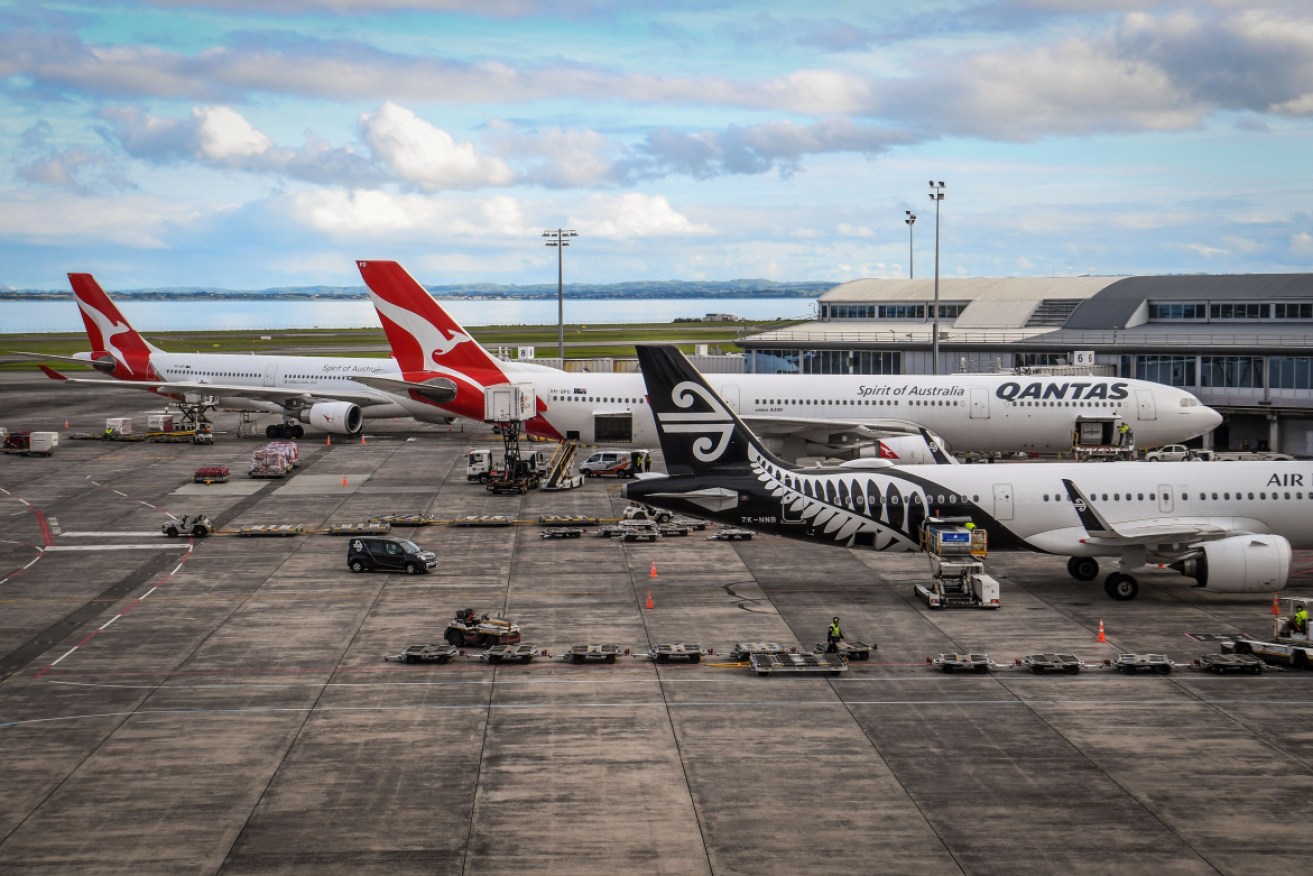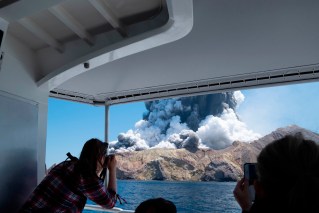‘Time to move’: Ardern shifts NZ borders

"It's time to move," Jacinda Ardern says of New Zealand's COVID-19 reopening plan.
New Zealand will soon begin a phased reopening to the world, dismantling hard borders that have kept the country safe from the worst of the COVID-19 pandemic.
The shift from quarantine will begin later in February, starting with allowing fully vaccinated Kiwis in Australia to self-isolate on arrival from February 28.
Two weeks after the Australian reopening, from March 14, all Kiwis abroad will also be able to avoid quarantine, as will skilled workers and working holiday visa holders.
By July, all Australians will be able to enter. In October, the government has pledged borders will “fully reopen to visitors from anywhere in the world, and all visa categories fully reopen”.
“It’s time to move,” Prime Minister Jacinda Ardern said in Auckland on Thursday, announcing the changes.
“Now it is time, to move forward together, safely.”
NZ has been largely adrift from the world for almost two years after adopting a tough-as-nails approach to keeping the virus out of the country.
A previous plan to reopen borders in January was discarded by Ms Ardern, who cited the need to up vaccination rates in the wake of Omicron.
That has happened. With 93 per cent of those aged 12 or over double-dosed, NZ now boasts jab rates among the highest in the world.
Ms Ardern pledged there would be no backtracking this time.
“These are very firm dates … New Zealanders in Australia are coming home on the 27th of February and can plan for it.”
Despite the new schedule, there is no confirmation on when NZ will ditch self-isolation and return to pre-pandemic travel.
Ms Ardern said this would be “constantly reviewed” but would “eventually be unnecessary”.
By and large, New Zealanders have supported the hardline border rules during the pandemic but there have been growing calls to lessen quarantine provisions – known locally as MIQ.
The case of Charlotte Bellis, a pregnant Kiwi journalist working in Afghanistan who found herself unable to navigate MIQ rules to come home to give birth, reignited calls to ease restrictions.
Beyond Bellis, there are thousands of other trans-Tasman families or Kiwis seeking to travel for myriad reasons.
There is also a legal challenge to the MIQ regime, crowdfunded by lobby group Grounded Kiwis, to go before the High Court this month.
“There is no question that for New Zealand it has been one of the hardest parts of the pandemic,” Ms Ardern said, defending its use.
“But the choice to use it, undeniably saved lives.”
The government will downscale MIQ, but retain it for high-risk travellers, including the unvaccinated.
As NZ reopens, it is still looking to curb the transmission of COVID-19 and avoid Australia-scale spikes in case numbers.
As part of the changes, all arrivals will be given three rapid antigen tests at the airport to take home – one for initial use, one for use later in isolation, and another as back-up.
“That gives us the best chance of identifying cases that have come across the border,” Ms Ardern said.
NZ’s border policies have minimised the loss of life during the pandemic, first eliminating the virus in 2020, then delaying the arrival of the Delta and Omicron variants.
Community transmission of Omicron has been detected in the past fortnight, and case numbers are again rising.
Public health experts and outbreak modellers say the current daily case record – 222 – will be beaten within days, and case numbers will be in the thousands during February.
Those projections are the reason NZ will continue to require self-isolation in coming months.
The country’s health system is considerably weaker than Australia’s, with fears hospitals and intensive care units could be overrun.
NZ’s COVID-19 death toll stands at 53, compared with Australia’s 3907.
-AAP








